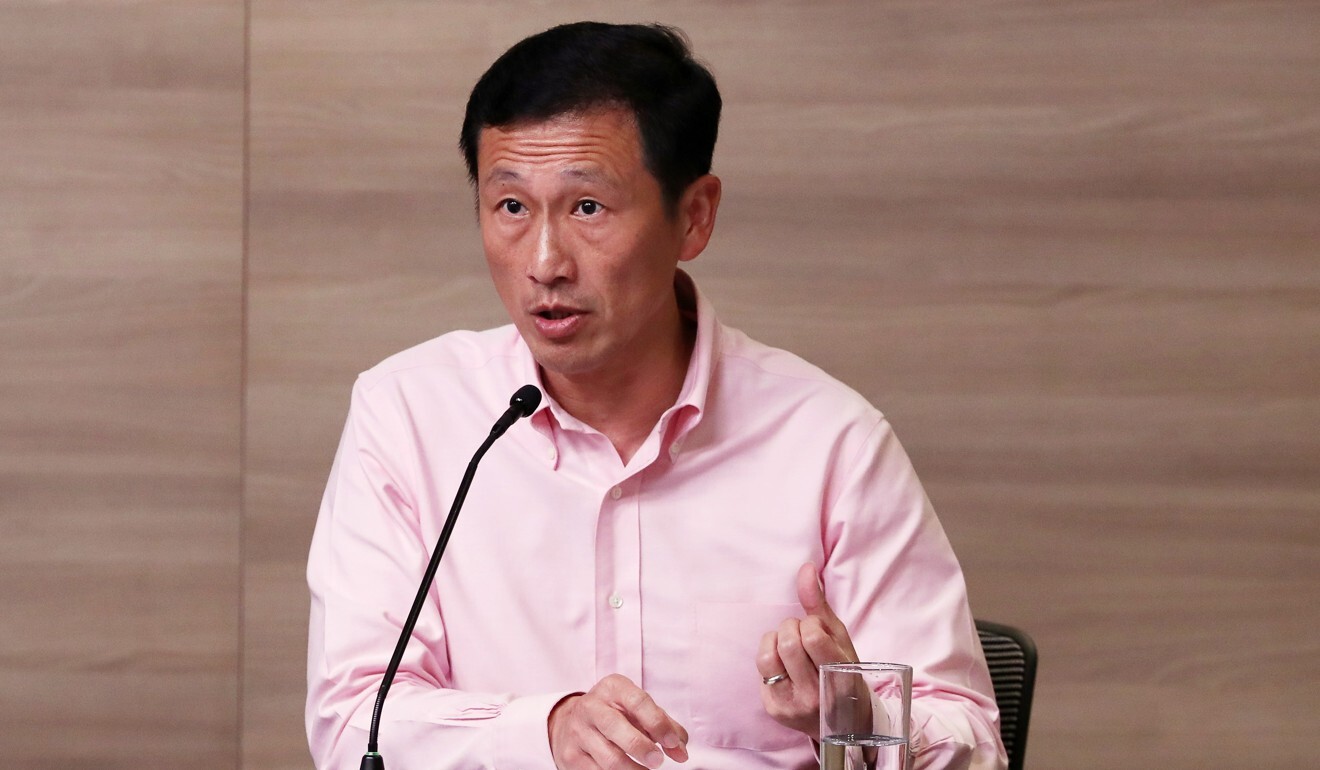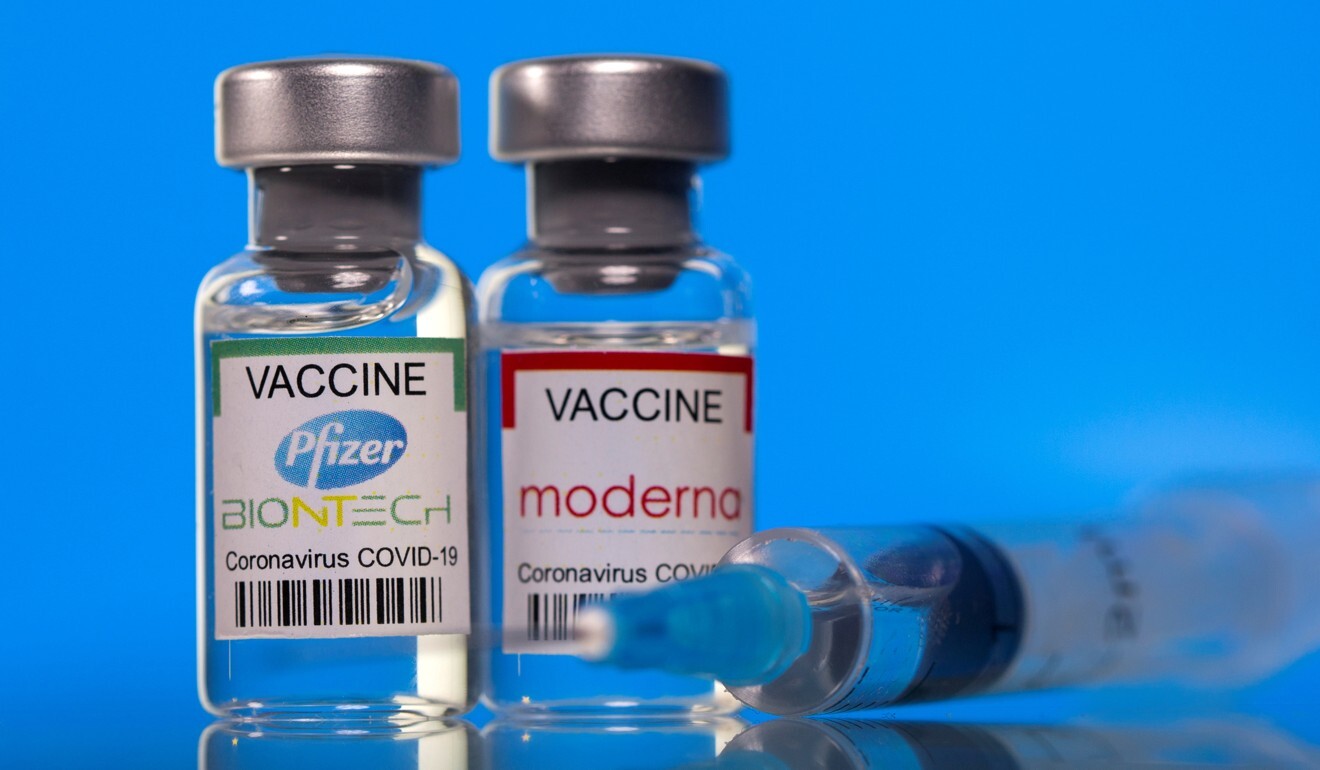
Singapore ramps up vaccination drive to give all adults one Covid-19 shot by early August
- The move means as many as 4.3 million people could receive their first vaccine dose by the end of July, compared to 3.9 million under the old plan
- Health Minister Ong Ye Kung said the interval between first and second doses would be extended to between six and eight weeks to help free up supplies

Singapore is speeding up its Covid-19 vaccine roll-out and aims to inoculate its entire adult population with at least one dose by early August, as it seeks to maximise its available supply of jabs amid a worrying spike in cases.
From Wednesday, the city state will expand its vaccination programme – currently open to those aged over 44 – to include those who are 40 and above. Younger people, including youths older than 12, can also now be vaccinated if a doctor recommends it, but the priority is still for adults to get the jabs first.
To help free up supplies, Health Minister Ong Ye Kung said the interval between first and second vaccine doses would be extended from 21 or 28 days apart to between six and eight weeks instead.

This means that as many as 4.3 million people in the country of 5.7 million could receive their first vaccine dose by the end of July, compared to 3.9 million if the authorities followed their previous approach of fully vaccinating eligible individuals before allowing those in younger age groups to book their vaccinations.
“The difference is that … instead of having a good number of people getting maximum protection, we make sure the maximum number of people who get good protection,” Ong said on Tuesday.
Health authorities said they were still confident of achieving their target of vaccinating Singapore’s entire population by the end of this year. Even so, they stressed that the timeline could change as it depended on supplies of the Pfizer-BioNTech and Moderna vaccines that are the only ones currently authorised for use in the city state. These were “steadily coming in but [remained] limited given high global demand”, the Health Ministry said in a statement.
Singapore has in recent weeks seen a growing number of domestic cases, logging 241 this month compared to 55 in April. There has also been a spike in unlinked cases – with the B.1.617 strain first identified in India, which is thought to be more transmissible, becoming increasingly prominent.
The country is now in a state of “heightened alert” as the government tightened restrictions over the weekend, banning dining-in and limiting social gatherings to two people until June 13.
As of Monday, more than one-third of people in Singapore had received at least one vaccine dose, while 24.6 per cent had been fully vaccinated.

Ong said the vaccine take-up rate had been “encouraging”, with 71 per cent of those aged 60 and above who were eligible to receive a vaccine having done so. This figure stands at 66 per cent for those aged between 45 to 69.
Singapore’s drug regulator, the Health Sciences Authority, has also authorised the use of the Pfizer-BioNTech vaccine for teens and children aged 12 to 15, following in the footsteps of the US and Canada. The health ministry said that its vaccine committee had considered the safety, efficacy and tolerability of the vaccine, as well as the design of clinical trials when making the move.
When asked about the shipment of Sinovac vaccines that Singapore received in February – which have yet to be approved by the city state’s regulators – Kenneth Mak, the health ministry‘s director of medical services, said they had a shelf life of up to two years.
He said authorities still required more information from the manufacturer of the China-made vaccine, which is currently under evaluation by the World Health Organization.
“We continue to evaluate it with a view towards seeing whether we could use these vaccines as early as possible, provided they are approved for use in Singapore,” he said.
Meanwhile, the health ministry updated its guidelines on the use of face masks, urging residents to wear surgical masks or reusable ones made from at least two layers of fabric for added filtration of respiratory droplets – pointing to higher levels of transmission, likely caused by new virus variants, that had been seen in recent infection clusters. Singapore is currently monitoring 16 active clusters, including one at its airport terminals that has grown to 78 cases.
Finance Minister Lawrence Wong, who co-chairs Singapore’s virus task force, urged residents to stay home. “As much as you can, stay home and go out only for essential activities. I think that will certainly help to break the transmission chain,” he said.